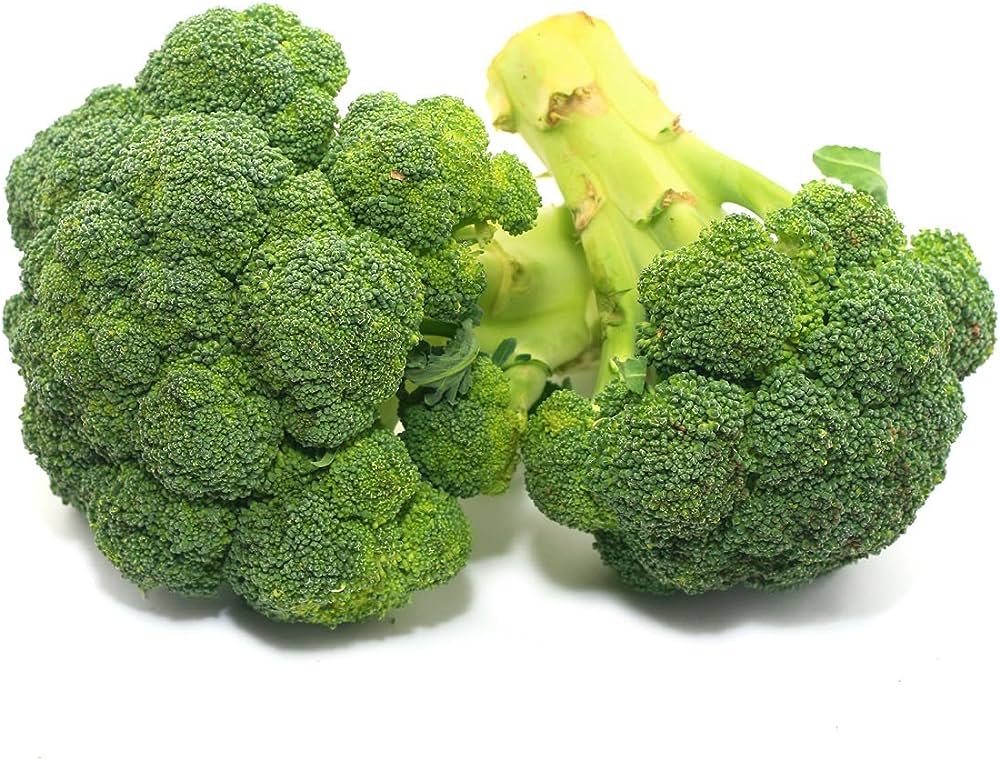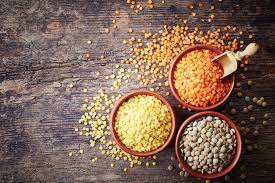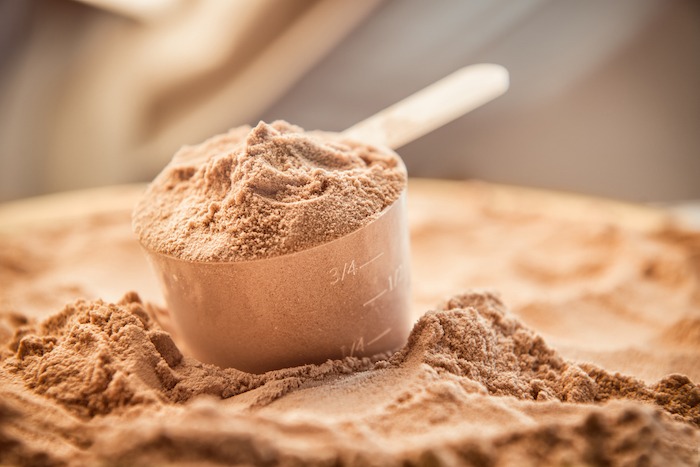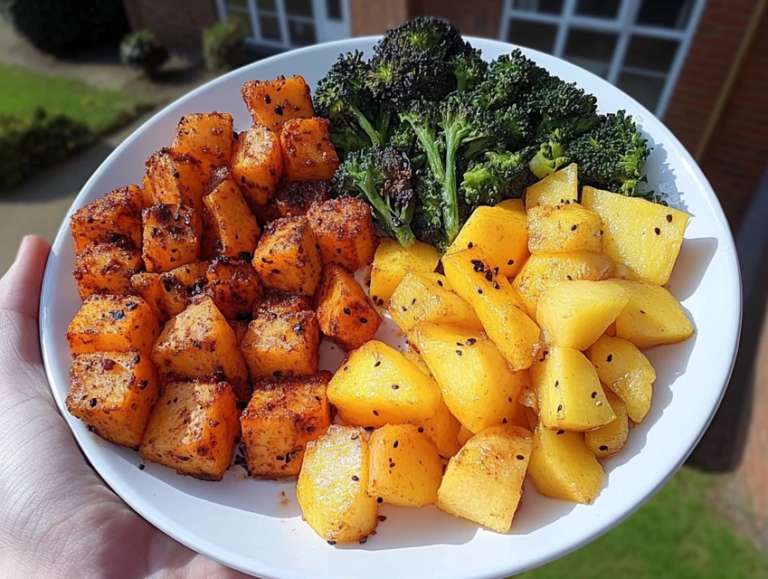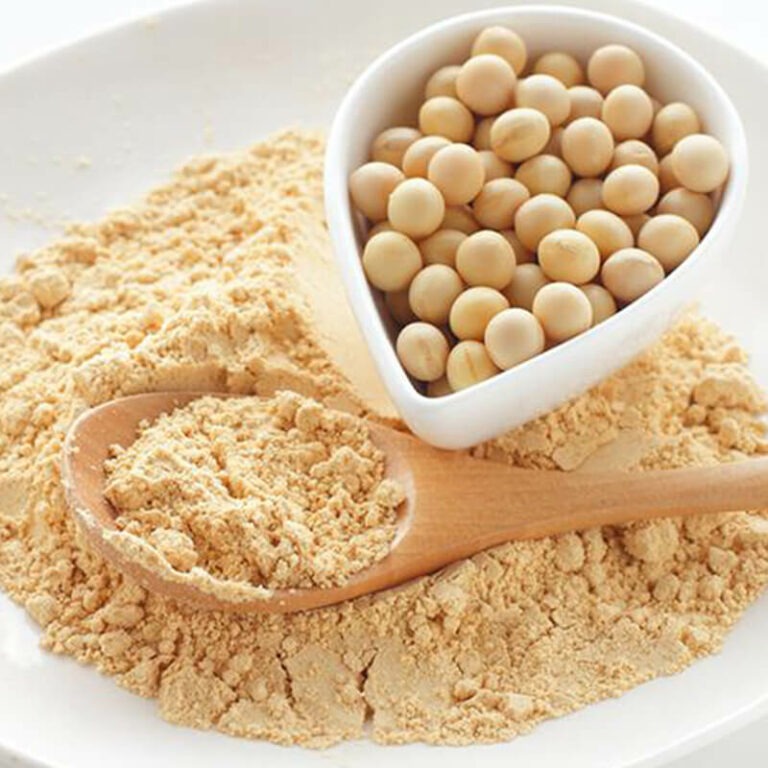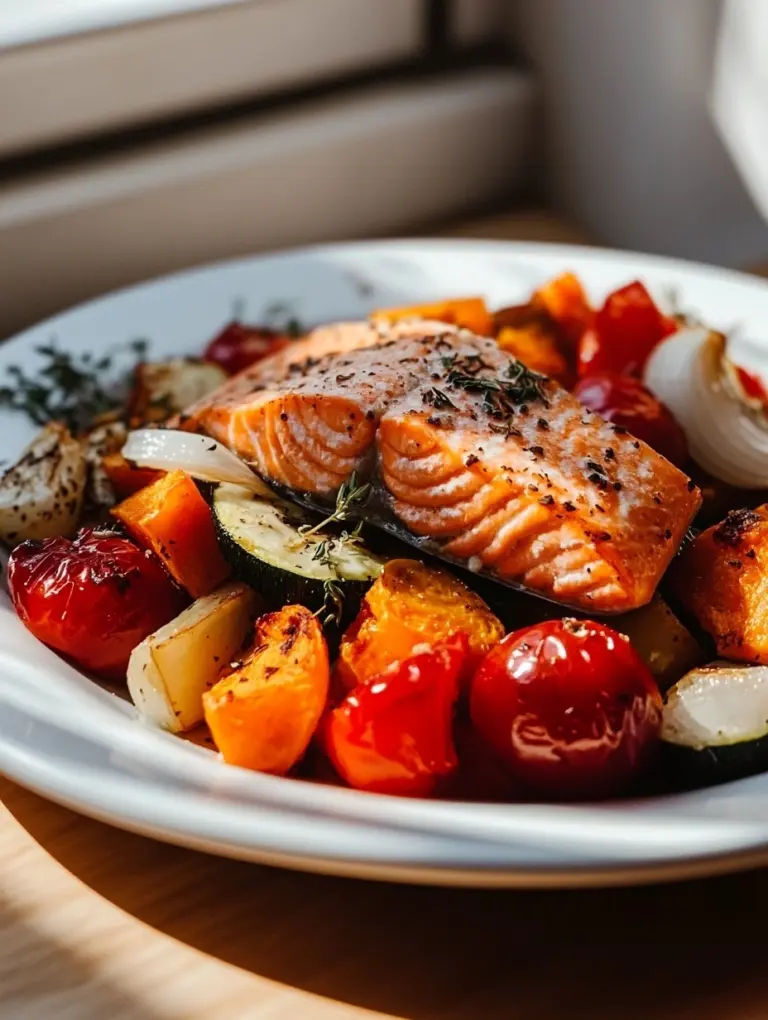From Barbells to Broccoli – Why This Veggie Deserves a Spot in Your Training Diet
For fitness enthusiasts, the path to peak performance isn’t just…
For fitness enthusiasts, the path to peak performance isn’t just about gruelling workouts and relentless dedication; it’s also about making well-informed dietary choices that fuel recovery, growth, and overall health. While protein sources and carbohydrate timing often steal the spotlight, one unassuming green vegetable is emerging as a nutritional marvel in athletic circles: broccoli. In this comprehensive guide, we’ll explore why broccoli is more than just a side dish—it’s a powerful performance booster. We’ll delve into its rich micronutrient profile, explain its role in digestion, detoxification, and recovery, and provide practical tips for incorporating it into your training diet. Let’s embark on this journey from barbells to broccoli and discover how this verdant virtuoso can help elevate your athletic performance.
1. Introduction: Nutrition Beyond Macronutrients
When it comes to athletic performance, the focus is often placed on macronutrients like protein, carbohydrates, and fats. However, the importance of micronutrients cannot be overstated. Micronutrients—vitamins, minerals, antioxidants, and other bioactive compounds—play critical roles in energy production, muscle recovery, immune function, and overall cellular health. Broccoli, with its impressive array of micronutrients and health-promoting compounds, is a prime example of a food that can bridge the gap between training demands and optimal recovery.
Athletes and bodybuilders who push their bodies to the limit often overlook the value of including nutrient-dense whole foods in their diets. Broccoli, a cruciferous vegetable, stands out as a powerhouse that not only supports general health but also directly contributes to improved performance. In the sections that follow, we’ll break down the many benefits of broccoli and explain why it deserves a prominent place on your plate.
2. A Symphony of Micronutrients
2.1 Vitamins: The Essential Boosters
Broccoli is loaded with an impressive range of vitamins that are vital for anyone engaged in intense physical activity:
- Vitamin C:
Often known as an immune booster, vitamin C also plays a crucial role in collagen production. Collagen is the primary protein involved in the repair and growth of tissues, including muscles and tendons. For athletes, this means that vitamin C can help facilitate quicker recovery and reduce the risk of injury. - Vitamin K:
This vitamin is essential for proper blood clotting and bone health. When you subject your bones and joints to the stress of weight training or high-impact sports, vitamin K helps maintain their strength and resilience. - Folate (Vitamin B9):
Folate is key for energy production and cell repair. It aids in the formation of DNA and RNA, which is essential during periods of rapid cell turnover—such as after a strenuous workout. - Other B Vitamins:
Broccoli contains various B vitamins that support metabolic processes, helping convert food into energy efficiently. This can be particularly beneficial during long training sessions when energy demands are high.
2.2 Minerals: The Building Blocks of Performance
In addition to vitamins, broccoli is an excellent source of essential minerals:
- Calcium:
Critical for bone strength and muscle function, calcium ensures that your muscles contract effectively and that your skeletal system can support heavy lifting. - Potassium:
This mineral helps regulate fluid balance and nerve signals. Adequate potassium levels are vital for preventing muscle cramps during intense exercise. - Magnesium:
Magnesium is involved in over 300 enzymatic reactions, including energy production and muscle contraction. For athletes, sufficient magnesium levels contribute to enhanced performance and quicker recovery. - Iron:
Iron is essential for oxygen transport in the blood. Adequate iron levels ensure that your muscles receive the oxygen they need during workouts, enhancing endurance and performance.
3. Dietary Fiber – Your Digestive System’s Best Friend
3.1 Supporting Digestion and Absorption
For athletes, efficient digestion is critical. The body needs to extract as much nutrition as possible from every meal, and that’s where dietary fibre comes in. Broccoli is rich in both soluble and insoluble fibre, which plays several important roles in digestion:
- Regular Bowel Movements:
Fibre helps promote regularity by adding bulk to stool, ensuring that waste products are eliminated efficiently. This prevents digestive sluggishness, which can interfere with nutrient absorption. - Steady Blood Sugar Levels:
Fibre slows the absorption of sugars, preventing the rapid spikes and crashes that can lead to energy fluctuations during training. - Satiety and Weight Management:
High-fibre foods help you feel fuller for longer, which can be a boon for athletes looking to manage their weight without compromising on energy or performance.
3.2 Enhancing Nutrient Bioavailability
Not only does fibre support regular digestion, but it also aids in the absorption of other nutrients. A healthy digestive system ensures that the vitamins and minerals in your food are effectively absorbed and utilized, which is essential for recovery and overall performance.
4. Detox Like a Pro: Natural Cleansing with Broccoli
4.1 Supporting the Body’s Natural Detoxification Processes
Broccoli contains a range of compounds that support the body’s natural detoxification mechanisms. One such compound is glucoraphanin, which the body converts into sulforaphane—a powerful agent that activates detoxification enzymes in the liver. These enzymes help process and eliminate potentially harmful substances from the body, ensuring that your system remains clean and efficient.
4.2 Clearing Out Performance-Hindering Toxins
For athletes, maintaining a detoxified body is crucial. Toxins and metabolic waste can accumulate over time, potentially hindering performance and recovery. By including broccoli in your diet, you provide your body with the tools it needs to combat oxidative stress and clear out these unwanted substances. The result is a cleaner, more efficient system that supports overall health and athletic performance.
5. Armor Against Oxidative Stress
5.1 Antioxidant Powerhouse
Intense workouts generate free radicals—unstable molecules that can cause cellular damage. Broccoli is rich in antioxidants such as quercetin and lutein, which help neutralize these free radicals. By reducing oxidative stress, broccoli can potentially aid in reducing muscle soreness and speeding up recovery.
5.2 Protecting Muscles and Cells
The antioxidant properties of broccoli not only support recovery but also protect your cells from damage over time. This protective effect is especially important for athletes who subject their bodies to repetitive stress and strain. Over the long term, consistent antioxidant intake may contribute to better muscle function and overall cellular health.
6. A Low-Calorie Volume Enhancer
6.1 Maximizing Satiety Without Extra Calories
For bodybuilders and athletes, maintaining a lean physique often means keeping calories in check. Broccoli offers an ideal solution—it is very low in calories yet high in volume. This means you can eat generous portions of broccoli without worrying about consuming too many calories. The high water and fibre content contribute to a feeling of fullness, which can help curb overeating and support weight management goals.
6.2 Ideal for Cutting Phases
During cutting phases, when the goal is to reduce body fat while preserving muscle mass, every calorie counts. Broccoli’s low caloric density allows you to fill up on nutrient-rich food that supports your performance without adding extra calories that might hinder fat loss. This makes it an excellent choice for anyone looking to optimize their body composition.
7. The Magic of Sulforaphane: Broccoli’s Superstar Compound
7.1 Anti-Inflammatory and Recovery Benefits
Sulforaphane, one of the most talked-about compounds in broccoli, has captured the attention of nutrition experts for its potent anti-inflammatory properties. Inflammation is a natural response to intense exercise, but when it becomes chronic, it can impede recovery and lead to injuries. Sulforaphane helps reduce inflammation at the cellular level, which can contribute to faster recovery times and better overall performance.
7.2 Potential Cancer-Protective Effects
Beyond its role in athletic performance, sulforaphane has been studied for its potential cancer-protective effects. While this benefit may be more relevant to long-term health rather than immediate athletic performance, it adds to the overall nutritional appeal of broccoli. Knowing that your diet supports not just your training but your lifelong well-being can be a powerful motivator.
7.3 Cellular Detoxification and DNA Repair
Sulforaphane also plays a role in activating cellular detoxification pathways and promoting DNA repair mechanisms. For athletes, this means that your body is better equipped to handle the stresses of intense training and environmental toxins, leading to improved recovery and sustained performance over time.
8. Vision Benefits: Eyes on the Prize
8.1 Lutein and Zeaxanthin for Eye Health
Good vision is an often-overlooked aspect of athletic performance, yet it is crucial for activities that require precision, balance, and spatial awareness. Broccoli contains lutein and zeaxanthin—two antioxidants that are key to protecting the eyes from oxidative damage and age-related vision problems. These compounds help filter harmful blue light and reduce the risk of macular degeneration, ensuring that your vision remains sharp as you push toward your performance goals.
8.2 The Connection Between Vision and Performance
For sports that rely on quick reflexes and precise hand-eye coordination, maintaining optimal vision is critical. By incorporating broccoli into your diet, you not only support your overall health but also protect an essential aspect of your performance. Whether you’re aiming for faster reaction times on the field or better focus during a workout, the eye health benefits of broccoli contribute to your competitive edge.
9. Balancing the Broccoli Equation: Frequency and Portions
9.1 How Often Should You Eat Broccoli?
Consistency is key when it comes to reaping the benefits of broccoli. To harness its full nutritional potential, incorporating broccoli into your diet 3-4 times per week is a good starting point. This frequency ensures that you receive a steady supply of its vitamins, minerals, antioxidants, and other beneficial compounds without over-relying on a single food source.
9.2 Recommended Portions
Portion size can vary depending on your overall dietary goals, but a general guideline is to aim for about 1 to 1.5 cups of broccoli per serving. This amount is sufficient to deliver the necessary nutrients without adding excessive bulk or calories to your diet. Whether enjoyed steamed, roasted, or raw in a salad, this portion size provides a balanced contribution to your daily nutritional intake.
9.3 Practical Tips for Including Broccoli in Your Diet
- Meal Prepping:
Prepare batches of broccoli at the beginning of the week. Steaming or roasting broccoli with a drizzle of olive oil and your favourite herbs can create a versatile side dish that pairs well with lean proteins and whole grains. - Incorporating into Smoothies:
For a different twist, add a small handful of raw or lightly steamed broccoli into your green smoothies. Combined with fruits like apples or bananas, it blends seamlessly and boosts your micronutrient intake. - Creative Recipes:
Experiment with recipes that integrate broccoli into main dishes, such as stir-fries, casseroles, or even pasta dishes. This versatility ensures that you can enjoy broccoli in various forms, keeping your diet interesting and nutritionally balanced.
10. Molecular Marvels: A Deeper Look at Broccoli’s Biochemistry
10.1 Sulforaphane: The Star Compound
At the molecular level, broccoli’s appeal lies in compounds like sulforaphane. Research has shown that sulforaphane can activate a range of cellular processes, including:
- Detoxification Enzymes:
Sulforaphane promotes the production of enzymes that help eliminate toxins from the body, thereby supporting overall cellular health. - Anti-Inflammatory Effects:
Its ability to reduce inflammation is particularly beneficial for athletes who experience regular muscle strain and tissue stress. - DNA Repair and Antimicrobial Action:
Sulforaphane has been implicated in supporting DNA repair mechanisms and even exhibiting antimicrobial properties, further highlighting its potential as a comprehensive health booster.
10.2 Indole-3-Carbinol: Hormone Regulation
Another intriguing compound found in broccoli is indole-3-carbinol, which may play a role in hormone regulation. By influencing oestrogen metabolism, indole-3-carbinol can help maintain hormonal balance—a factor that is increasingly recognized as important for overall health and athletic performance.
10.3 The Interplay of Micronutrients
Beyond its standout compounds, broccoli offers a rich tapestry of micronutrients that work synergistically. The combination of vitamins, minerals, fibre, and antioxidants creates a nutrient profile that is hard to beat. This complex interplay supports various bodily functions, from energy production and immune defence to muscle recovery and bone health.
11. Integrating Broccoli into an Athletic Diet: Strategies for Success
11.1 Planning Your Meals Around Performance
For athletes and bodybuilders, planning is everything. Integrating broccoli into your training diet can be both simple and effective:
- Breakfast Boost:
Consider adding chopped broccoli into an omelette or a savoury breakfast bowl to kick-start your day with a nutrient punch. - Lunch and Dinner:
Use broccoli as a main side dish with lean protein sources like chicken, fish, or tofu. Its versatility means it can be prepared in a variety of ways—steamed, roasted, or even lightly stir-fried. - Snacks and Sides:
For a crunchy, refreshing snack, pair raw broccoli florets with a healthy dip like hummus or Greek yogurt. This not only boosts your fibre intake but also keeps your energy levels steady between meals.
11.2 Timing and Nutrient Timing
When training intensity is high, timing your nutrient intake becomes crucial. Incorporating broccoli into meals around your workouts can offer several benefits:
- Pre-Workout:
A meal or snack containing broccoli and other vegetables provides antioxidants that help minimize exercise-induced oxidative stress. - Post-Workout Recovery:
After training, combining broccoli with a source of protein and complex carbohydrates can aid in muscle recovery and replenish lost nutrients.
11.3 Balancing Your Diet
While broccoli is a nutritional superstar, it’s important to balance your diet with a variety of whole foods. Use broccoli as a key component of a diverse meal plan that includes other vegetables, fruits, lean proteins, whole grains, and healthy fats. This balanced approach ensures that you’re not only optimizing performance but also supporting overall health.
12. Broccoli and Long-Term Health: Beyond the Gym
12.1 The Role of Micronutrients in Preventive Health
For athletes, maintaining peak performance is not just about training hard—it’s also about sustaining health over the long term. The micronutrients found in broccoli play a crucial role in preventing chronic diseases, supporting immune function, and promoting longevity. Regular consumption of broccoli can contribute to:
- Reduced Inflammation:
The anti-inflammatory properties help prevent chronic inflammation, which is linked to various diseases. - Improved Cardiovascular Health:
Vitamins like K and C, along with antioxidants, support heart health and reduce the risk of cardiovascular disease. - Enhanced Bone Density:
Calcium, along with vitamin K, ensures that bones remain strong and resilient—a vital factor for athletes engaged in high-impact activities.
12.2 An Investment in Future Performance
By prioritizing foods like broccoli in your diet, you’re making an investment in your long-term health and performance. A diet rich in nutrient-dense, whole foods not only helps you perform better today but also lays the foundation for a healthier, more active future. The benefits of this holistic approach to nutrition extend well beyond the gym, influencing every aspect of your life—from energy levels and mental clarity to overall physical well-being.
13. Conclusion: The Verdant Virtuoso in Athletic Nutrition
Broccoli isn’t just another green vegetable—it’s a nutritional powerhouse that deserves a central spot in the diet of anyone serious about fitness and performance. With its rich array of vitamins, minerals, fibre, and bioactive compounds, broccoli supports everything from muscle repair and energy production to detoxification and long-term disease prevention. Its low-calorie density makes it an ideal food for those looking to maintain a lean physique without sacrificing nutritional value.
By incorporating broccoli into your training diet 3-4 times a week and balancing it with a diverse range of whole foods, you can harness its full potential. Whether you’re using it as a side dish with your lean proteins, adding it to your post-workout meals for enhanced recovery, or even enjoying it raw as a healthy snack, broccoli offers benefits that go far beyond what meets the eye.
In today’s fast-paced world where performance and health are paramount, returning to a diet based on whole, nutrient-dense foods is more important than ever. Broccoli exemplifies how a simple, natural food can provide the building blocks for optimal performance, robust recovery, and sustained long-term health. As research continues to shed light on the myriad benefits of this verdant marvel, its role in athletic nutrition only grows more compelling.
Disclaimer: This blog post is crafted for informational purposes and isn’t an endorsement of any supplements. Consultation with professionals is vital when making health or athletic decisions.

